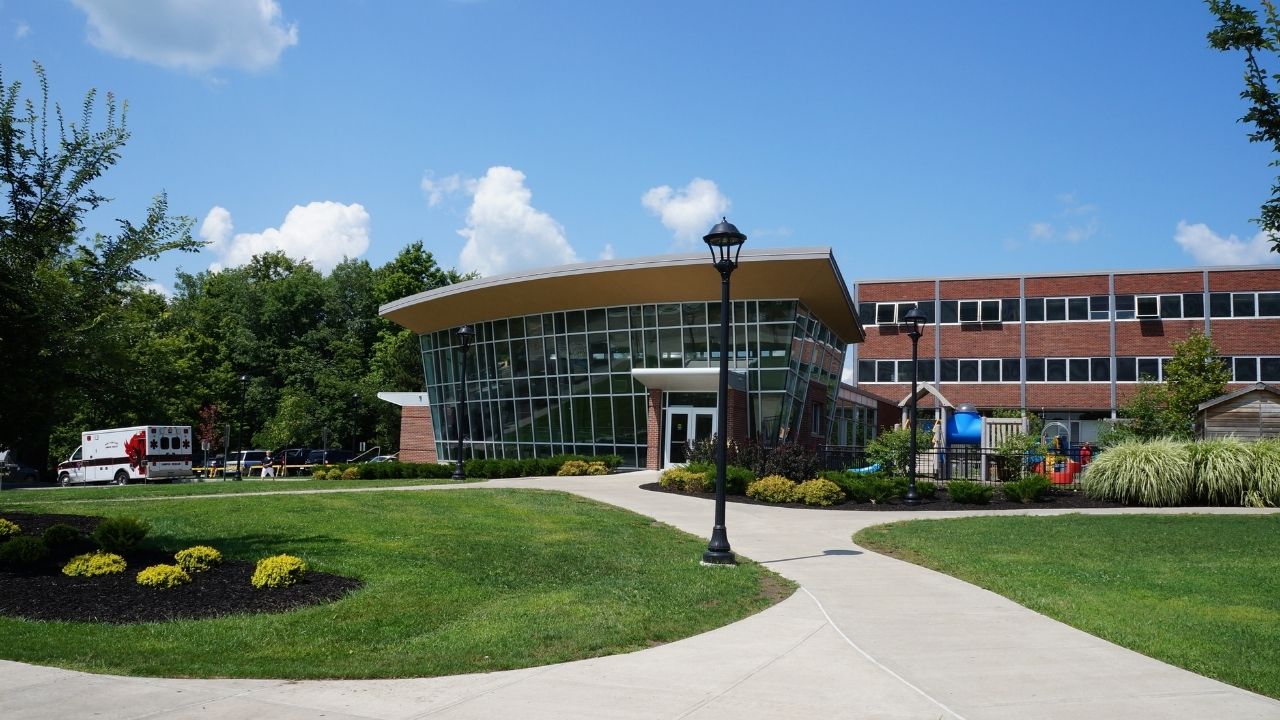Table of Contents
Welcome to the empowering world of women’s education! Today, we dive into the fascinating history and impact of the Seven Sisters Colleges. These prestigious institutions have played a pivotal role in shaping generations of trailblazing women, providing them with top-notch education and a platform to defy societal norms. From their inception to their present-day influence, join us as we explore how these colleges continue to champion female empowerment. So grab your notebooks and prepare to be inspired by the legacy of the Seven Sisters Colleges!
What are the Seven Sisters Colleges?
What are the Seven Sisters Colleges? These institutions, often referred to as the “female Ivy League,” were a group of prestigious women’s colleges in the United States. Consisting of Barnard College, Bryn Mawr College, Mount Holyoke College, Radcliffe College (now part of Harvard University), Smith College, Vassar College (coeducational since 1969), and Wellesley College, they provided unparalleled educational opportunities for women during a time when higher education was predominantly male-dominated.
Each college had its unique strengths and offerings. For example, Barnard College in New York City offered an urban campus experience with access to renowned cultural institutions. On the other hand, Wellesley College in Massachusetts boasted a picturesque suburban location known for its strong liberal arts curriculum.
These sister colleges shared common values centered around academic excellence and female empowerment. They fostered an environment where women could freely pursue their intellectual interests and develop critical thinking skills without societal limitations or gender discrimination.
By empowering women through education and fostering a sense of community among students, these colleges played a crucial role in challenging traditional gender roles and promoting equality. Graduates from these institutions went on to become influential figures in various fields such as politics, literature, science, and business.
Today’s modern landscape has seen changes within the Seven Sisters Colleges. Some have transitioned into coeducational institutions while still maintaining their commitment to promoting gender equality. The legacy left by these pioneering colleges continues to inspire current students who strive for academic excellence while advancing social progress.
In our next section, we will delve deeper into the rich history behind these remarkable establishments that shaped generations of empowered women! So stay tuned as we uncover their inspiring journey through time.
The History of the Seven Sisters Colleges
The history of the Seven Sisters Colleges is a fascinating tale of women’s education and empowerment. These prestigious institutions were founded in the late 19th and early 20th centuries, at a time when higher education for women was still considered controversial.
Each of the Seven Sisters Colleges – Barnard, Bryn Mawr, Mount Holyoke, Radcliffe, Smith, Vassar, and Wellesley – has its own unique story. They were originally established as separate institutions but later formed a consortium to promote collaboration and academic excellence.
Barnard College, founded in 1889, was the first college in New York City to offer liberal arts education for women. Bryn Mawr College followed suit in 1885 with its commitment to intellectual rigor and social responsibility.
Mount Holyoke College holds the distinction of being one of the oldest women’s colleges in America. It was established in 1837 by Mary Lyon with a focus on providing practical education alongside traditional academics.
Radcliffe College emerged as an institution affiliated with Harvard University during a time when Harvard did not admit women directly. It offered female students access to Harvard resources while maintaining its independent identity until it merged fully with Harvard in 1999.
Smith College has been known for its dedication to cultivating leadership skills among women since its founding days in 1871. The college prides itself on offering rigorous academics combined with vibrant extracurricular opportunities.
Vassar College started as an experiment challenging societal norms by admitting both male and female students before transitioning into an all-women’s institution by 1913. Its campus showcases stunning architecture that reflects this unique history.
Wellesley College is renowned for fostering academic achievement while encouraging students’ personal growth and social consciousness since its establishment in 1870. Notable alumnae include Hillary Rodham Clinton and Madeleine Albright.
These colleges played a pivotal role not only in educating generations of intelligent young women but also in promoting gender equality and social progress. They provided a safe and supportive environment where women could gain knowledge and confidence to make a real difference in the world.
The Impact of the Seven Sisters Colleges
Not only did the Seven Sisters Colleges provide women with a quality education, but they also had a profound impact on society as a whole. By offering opportunities for higher education to women at a time when it was not widely available, these colleges played a crucial role in advancing gender equality.
One significant impact of the Seven Sisters Colleges was their influence on women’s empowerment. Graduates from these institutions went on to become leaders in various fields, including politics, business, and academia. Their achievements shattered societal expectations and proved that women were just as capable as men.
Furthermore, the Seven Sisters Colleges challenged traditional gender roles by encouraging female students to pursue academic excellence and participate in intellectual discourse. This led to an increased recognition of women’s intelligence and capabilities outside of domestic spheres.
Additionally, these colleges fostered strong networks among alumnae who supported each other personally and professionally throughout their lives. These connections allowed women to break through barriers and gain access to influential positions that were previously reserved for men.
Moreover, the impact of the Seven Sisters extended beyond their campuses. The graduates became advocates for social change, using their knowledge and skills gained from their education to fight for equal rights for all individuals.
The Seven Sisters Colleges Today
The Seven Sisters Colleges, with their rich history and legacy of women’s education, continue to play a significant role in shaping the landscape of higher education today. While some changes have occurred over the years, these institutions remain dedicated to empowering women and promoting academic excellence.
Today, the Seven Sisters Colleges – Barnard College, Bryn Mawr College, Mount Holyoke College, Radcliffe College (now part of Harvard University), Smith College, Vassar College (now coeducational), and Wellesley College – offer diverse academic programs spanning various fields of study.
These colleges strive to provide a supportive environment where students can explore their passions and develop valuable skills. They prioritize small class sizes and close student-faculty relationships to foster an atmosphere conducive to learning and personal growth.
Additionally, the Seven Sisters Colleges have embraced modern advancements while staying true to their roots. They now offer online courses for greater accessibility and have expanded their resources in STEM disciplines. These institutions are committed to preparing future generations of female leaders who are well-equipped for success in our rapidly evolving world.
Furthermore, the commitment to social justice remains strong among these colleges. Many students engage in community service projects both locally and globally as part of their educational experience. The emphasis on activism fosters a sense of responsibility towards creating positive change in society.
Conclusion
The legacy of the Seven Sisters Colleges is one that continues to inspire and empower women today. These institutions were pioneers in providing high-quality education to women at a time when opportunities for higher learning were limited. Their commitment to academic excellence, social justice, and the advancement of women’s rights has left an indelible mark on our society.
Through their rich history, the Seven Sisters Colleges have produced countless trailblazers who have made significant contributions in various fields. From writers like Sylvia Plath and Gloria Steinem to politicians like Hillary Clinton and Madeleine Albright, these colleges have nurtured generations of strong, independent women who are making a difference in the world.
Today, while some of the original Seven Sisters Colleges have merged with coeducational institutions or transitioned into fully coeducational campuses themselves, their mission remains intact. They continue to prioritize empowering women through education and fostering an inclusive community that celebrates diversity.
In a world where gender equality is still a work in progress, the impact of these colleges cannot be overstated. By educating generations of talented women and equipping them with knowledge, skills, confidence, and networks necessary for success, they are breaking down barriers and shattering glass ceilings.
As we move forward into the future, it is crucial that we recognize and celebrate the lasting impact of the Seven Sisters Colleges. Their commitment to empowering women serves as a reminder that education is not just about acquiring knowledge but also about transforming lives.
So let us honor their legacy by continuing to support educational opportunities for all individuals regardless of gender or background. Together we can build a more equitable society where everyone has equal access to education – because when you educate a woman; you educate a nation!








